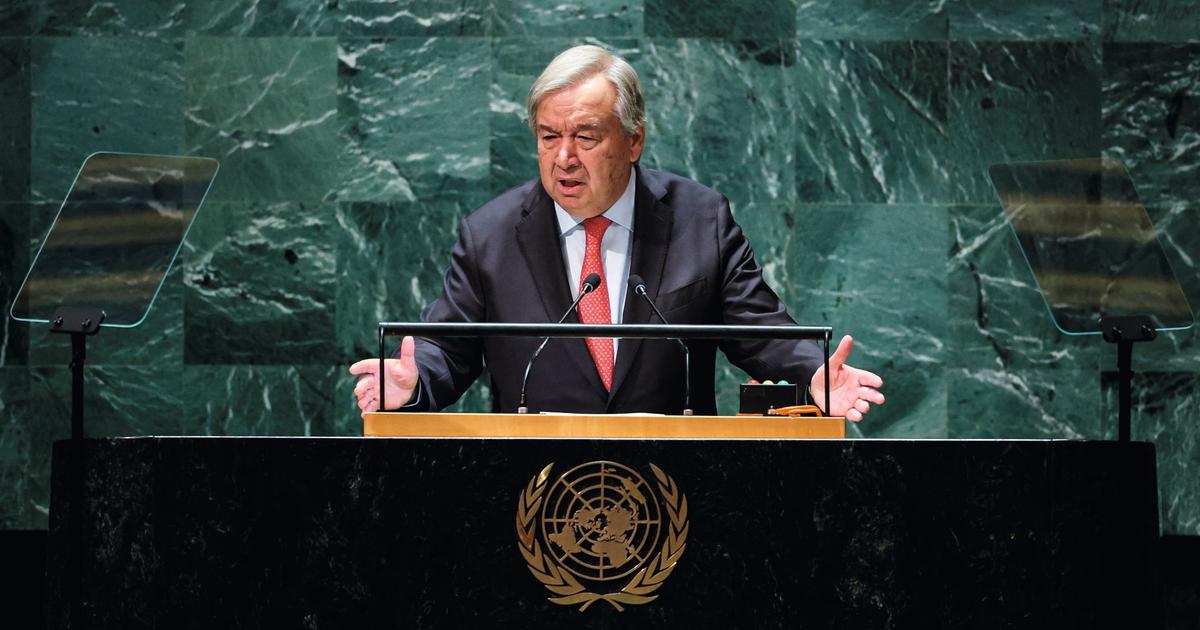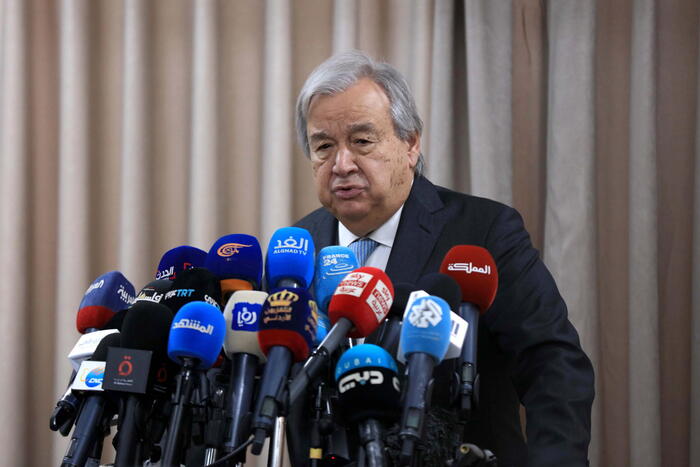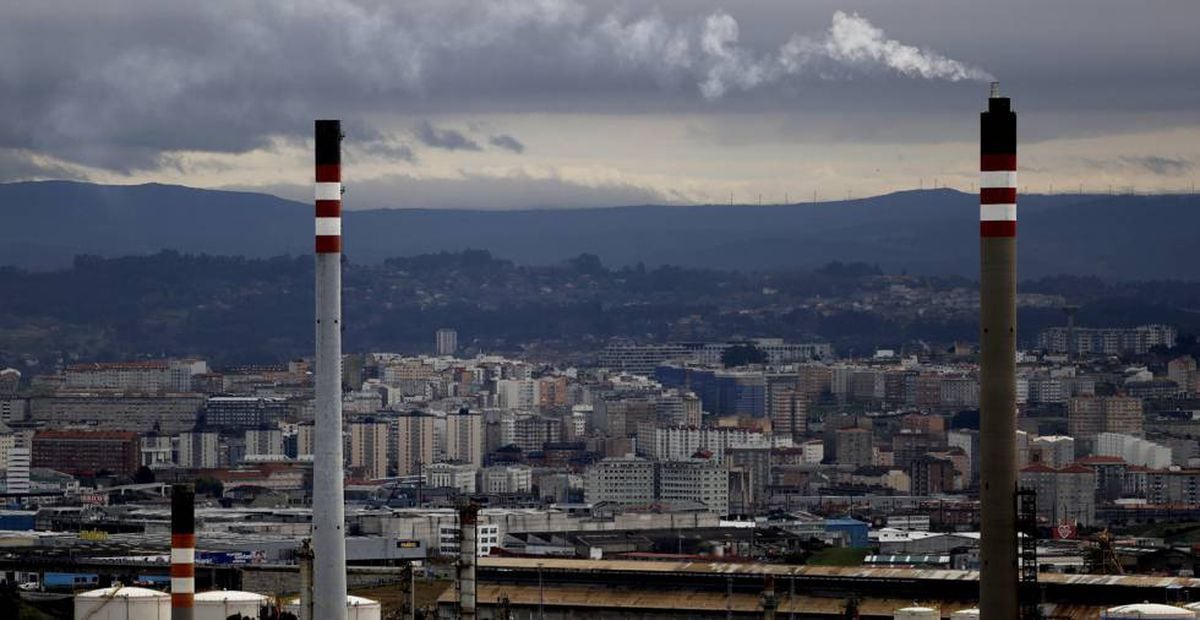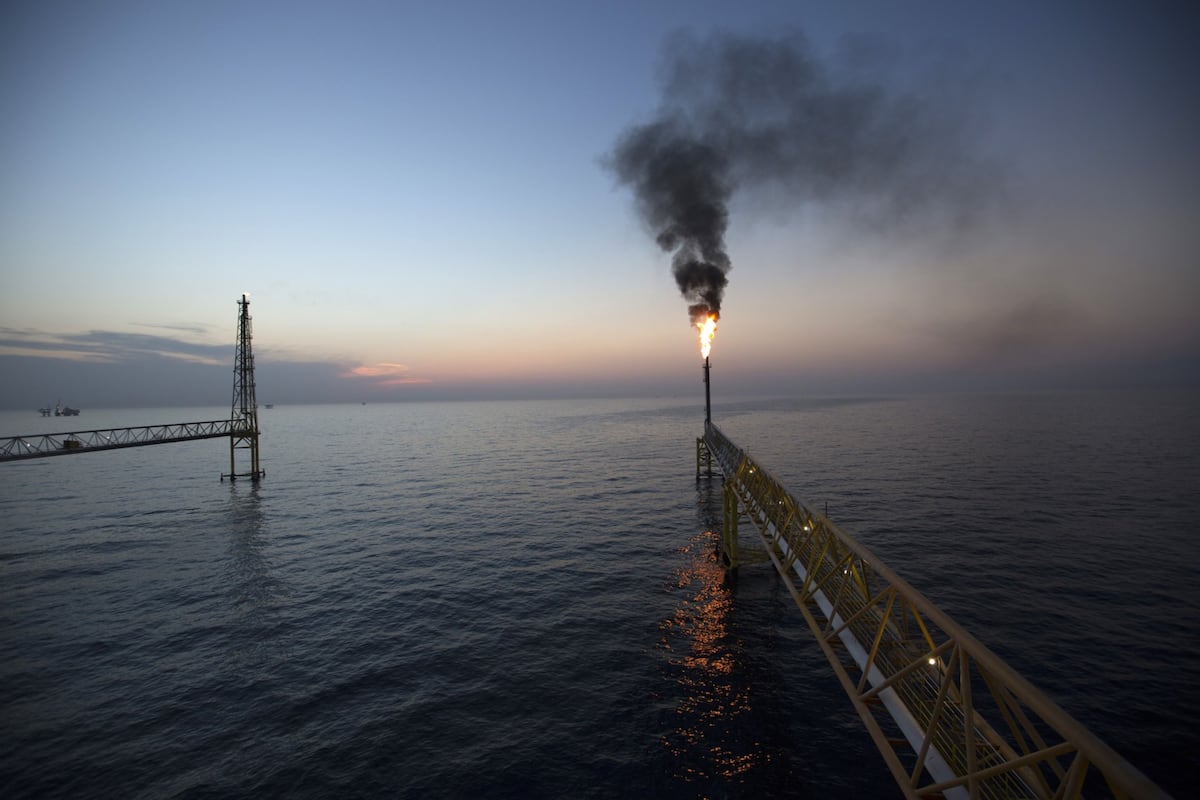The G-7, the group of most industrialized countries on the planet, is holding an important summit starting this Friday from which it is expected that a historic tax agreement will emerge to set a minimum corporate tax. In this face-to-face meeting, which will last three days and will be held in Cornwall (United Kingdom), António Guterres (Lisbon, 72 years old), Secretary General of the United Nations will participate. Guterres wants to convey to the leaders of the G-7 - Germany, Canada, the United States, France, Italy, Japan and the United Kingdom - two clear messages: the need to guarantee vaccination against covid-19 to all the inhabitants of the planet and the obligation of the most developed countries to fulfill their economic promises so that the poorest regions can combat the effects of global warming.
"It is a question of justice," he says about the climate aid that developed countries must provide.
"If we look at the current impacts of climate change, it is already the developing countries, the African countries, the small island states, who are paying a higher price," he says in a videoconference interview with EL PAÍS, the British newspaper
The Guardian
and the US network NBC News within the Covering Climate Now project, an international media consortium created to promote information on climate change in the world.
"It is fair that there is compensation for the impacts that already exist and that are dramatic," he adds about a problem whose historical responsibility is the richest countries.
More information
Scientific alert for collateral damage to biodiversity of some measures against climate change
2021: a decisive year in the climate fight
These promises of aid to developing areas were included in the Paris Agreement, signed in December 2015, which not only seeks to keep the already irreversible increase in temperature within the less catastrophic margins. It also aims for the richest states to help the poorest to reduce their emissions and adapt to the impacts of warming. The commitment was that from the countries with the most resources, 100 billion dollars would be mobilized annually from 2020. "That has not happened," says Guterres. "We still need to increase the financing commitments of developed countries in the public part, not to mention the private one, by between 20,000 and 30,000 million dollars," says the UN Secretary General.
Finding out the level of funding that has been reached is really complicated and generates a lot of debate. The OECD, which represents the interests of donor countries, released a study at the end of 2020 in which it claimed that in 2018, $ 78.9 billion in climate finance had been reached; To know the balance of 2020 this organization said that it would be necessary to wait until 2023. But that amount includes direct public aid, loans of all kinds, private investments ... And a report from the NGO Oxfam also from the end of last year reduced the real value of these grants - up to 20,000 million dollars - is much higher if only direct grants are taken into account and loans are eliminated from that balance sheet.
“The problem lies in clarifying how the private party contributes, but the OECD report, which is a credible institution, even though it is a club of rich countries, shows that we are still far from complying with what has been promised and that it is necessary to clarify the way in which the Paris commitment will be fulfilled, ”says Guterres.
That is exactly what he will demand of the G-7 leaders: to clarify "the way in which the 100 billion dollars a year are going to be mobilized for mitigation and also for adaptation."
"Developing countries are paying the highest price for climate change"
That the promised funds arrive is a question of "justice", but it is also a way to "restore confidence between developed countries and emerging economies." “It is not enough for developed countries to commit to achieving net zero emissions [that only CO₂ that can be captured by sinks, such as forests] is emitted by 2050, as they are doing. Emerging economies need to do so as well. But to do so, it is absolutely essential to restore trust with these emerging economies and to show that the developed world is going to meet its financial commitments. " And he adds: “Without the restoration of this confidence it will not be easy for emerging economies to commit to achieving net zero emissions and that commitment is essential. Without China, without India, without Brazil, without South Africa,without Indonesia, without these countries we will not achieve carbon neutrality in 2050. ″
The UN Secretary General applauds the return of the United States to the climate fight and the new goals of that country to reduce its emissions.
"They represent an extremely important development because we now have around 70% of global emissions covered by net zero emissions commitments."
But he argues that the US must make a greater effort, precisely, in climate finance: "It needs to go clearly above, I would say, more than double the commitments it has already assumed."
CO₂ price and coal financing
Guterres believes that the fiscal pact that is expected to be closed at this summit "is a step in the right direction." "It is unacceptable to verify that some of the large multinational companies, especially in the technological areas, practically do not pay taxes when their profits have risen in a brutal way with the pandemic," adds the head of the UN. But, in addition, he believes that this pact can open the door for a price to be set on international carbon dioxide, that is, an instrument that burdens emissions. “I hope that an international agreement is possible before COP26 in Glasgow [the climate summit that takes place in November in the Scottish city]. And that at COP26 an agreement on Article 6 of the Paris Agreement is possible to allow the global creation of a carbon market ”,something that was not achieved at the Madrid summit in 2019.
Guterres advocates putting measures in place to make this "carbon price and even a carbon tax" "fiscally neutral." “It is necessary to create a carbon tax but also to reduce especially income taxes that have to do with work, with wages. If the two things are done at the same time, it is possible that there is an acceptance on the part of the society. If one only taxes the carbon, there may be rejection, it is necessary to be smart. Taxing carbon should not be done to increase public revenue ”. "If we put the price on carbon and stop the subsidies to fossil fuels, many of the investments that are still being made with a recovery perspective linked to fossil fuels, obviously, will not be profitable," he considers.
“Coal is still the worst problem we face.
And many countries are still addicted to coal "
The G-7 summit is expected to produce the commitment of these seven powers to stop financing coal-fired electricity generation projects with public funds by the end of this year both inside and outside their borders, according to what the ministers agreed of the Environment in May.
“Coal is still the worst problem we face.
And many countries are still addicted to coal;
we have to create the conditions for a transition from coal to renewable energy, ”says Guterres.
"We call for the elimination to be complete in 2030 for the OECD countries and in 2040 for the rest of the world."
But, as Guterres acknowledges, this will not be enough and it is also necessary to target oil and natural gas, also sources of greenhouse gas emissions. “I am convinced that the world will not be able to use all the oil and gas that is already discovered. Continuing to exploit new projects, in my opinion, does not make any sense, "he says about a recent report by the International Energy Agency that advocated that governments not authorize new oil and gas exploitations in order to comply with the Paris Agreement.
Guterres also notes with satisfaction some recent movements in companies that emit high greenhouse gases, such as oil companies. And he cites the example of Exxon, in whose assembly a couple of weeks ago there was a rebellion that ended with the appointment of three councilors at the proposal of an activist fund against climate change. “It was the shareholders, the small investors, who have mobilized to ensure that there is a representation of the green vision of the future in the management of the company. Today there is a conscience that is in civil society, that is in cities, that is increasingly in the business world and in the financial world, which in my opinion also has to mobilize governments ”. Because, in Guterres's opinion,“Probably the private sector is advancing with more force than governments.
Climate change information
This interview is part of the Covering Climate Now project, a global consortium of more than 400 media outlets created to strengthen coverage of climate information.
You can follow CLIMA Y MEDIO AMBIENTE on
and
, or sign up here to receive
our weekly newsletter















